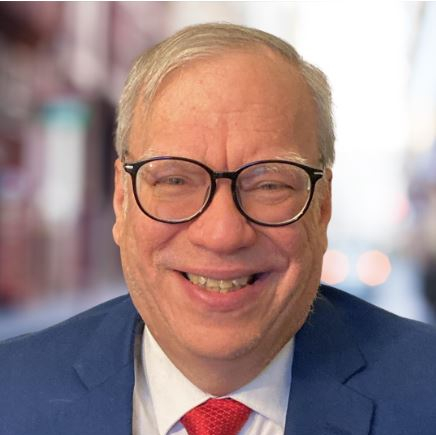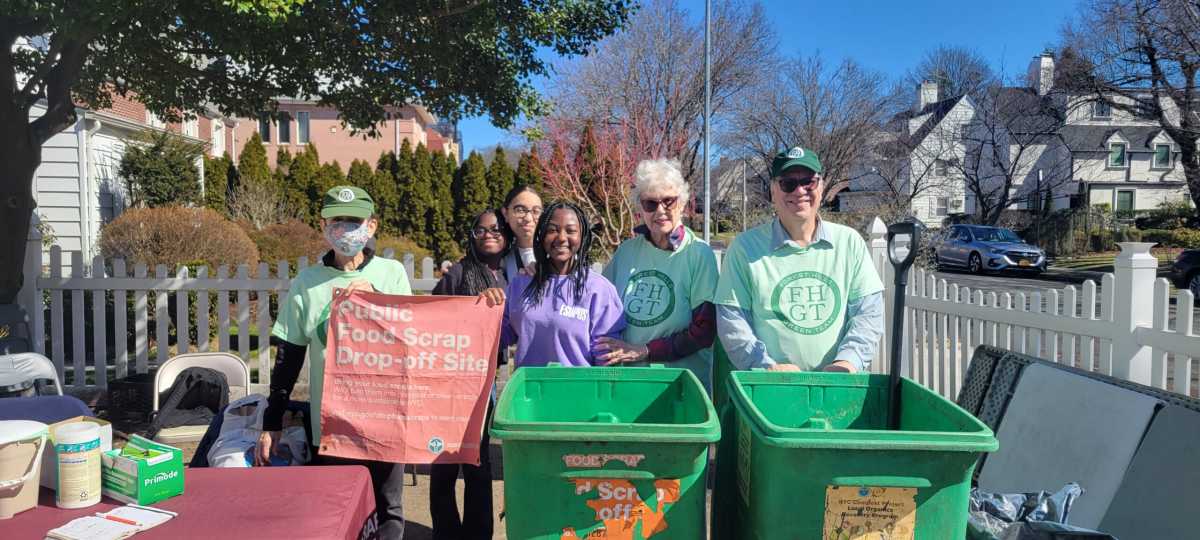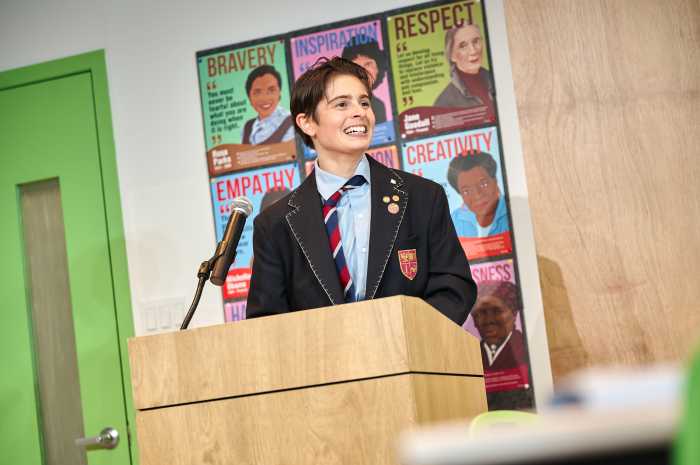New Yorkers produce 4 million tons of household waste yearly, most of which is shipped to landfills or incinerators. About a third of this is organic waste, which includes yard waste and food scraps.
When organic waste is buried in a landfill, it often breaks down to produce the powerful greenhouse gas methane. When organic waste is composted, it becomes safe and useful soil amendments, and the greenhouse gas emissions are avoided. The more organic waste can be separated from regular garbage and composted, the more the City saves in shipping costs, and lowers our contribution to the climate crisis.
The Forest Hills Green Team is a local, grass roots organization dedicated to fighting climate change by engaging in on the ground activities, educating young people about climate change, and legislative advocacy.
The organization partners with the Save Our Compost coalition and the NYC Compost project.
The NYC Compost Project is currently a collaboration between GrowNYC; LES Ecology Center; Big Reuse; Earth Matter; Queens Botanical Gardens; Snug Harbor Cultural Center and Botanical Gardens; and New York Botanical Gardens who run food scrap drop off sites, where people drop off their food scraps and yard waste; composting processing facilities where these materials are turned into compost, which is used to enrich soil and provides education to residents throughout the City regarding composting.
Some of these food scrap drop off sites are staffed by employees; some are unstaffed and others are community led drop off sites. The group also distributes compost; runs the Master Composting program where people learn how to compost; provide technical assistance and assists with tree maintenance.
In addition to running food scrap drop-off sites, the NYC Compost Project provides transportation of food waste to both community composting facilities and smaller scale community processing sites.
The Save Our Compost Coalition was formed in May 2020 when the pandemic forced the closure of composting sites.
This past November, Mayor Adams announced NYC budget cuts which resulted to NYC Sanitation Commissioner Tisch eliminating $3 million in funding for Community Composting. These cuts were protested by three rallies organized by the Save Our Compost Coalition, by 29 Council Members and 4 Borough Presidents, and nearly 50,000 signers of a GrowNYC online petition. However, the cuts were not restored. Some of the over 200 food scrap drop-off sites and 7 processing sites built over many years of effort, closed. Private donations allowed some sites to operate through the end of June 2024.
Mayor Adams released his proposed budget for the upcoming fiscal year which revealed that he is allocating no funding for community composting through 2028, which tells us that all the activities of NYC Compost Project will end in June 2024.
Though the Mayor has stated fighting climate change is one of his top priorities, proposals to fight climate change such as complying with Local Law 97; implementing congestion pricing; setting up wind farms, always have pushback.
Community composting has demonstrated how we can empower communities to fight climate change in ways that do not require a major investment of funding, time or energy.
The Mayor and DSNY Commissioner claim that community composting can be eliminated because curbside pickup of organic waste, called curbside composting, has been introduced in Queens and Brooklyn, and will be made available to the other boroughs this fall. But just because the service is available does not mean it is used. Though apartment buildings in these boroughs are mandated to separate and collect food and yard waste for curbside composting there currently are no penalties for not participating.
Without a strong ongoing city public education campaign, which community composting has been doing well for over 30 years, it will fail just as other attempts have in the past. Most of the neighbors who use the Forest Hills Green Team food scrap drop off site live in buildings which choose not to participate in the city’s curbside composting program .
Please reach out to the Mayor; the Commissioner; and your City Councilmember and demand we Save Our Community Composting! If you want to join our efforts to educate and advocate , for community composting, please email fhgtinc@gmail.com.
*Mark Laster is the Co-Chair of the Forest Hills Green Team.


































